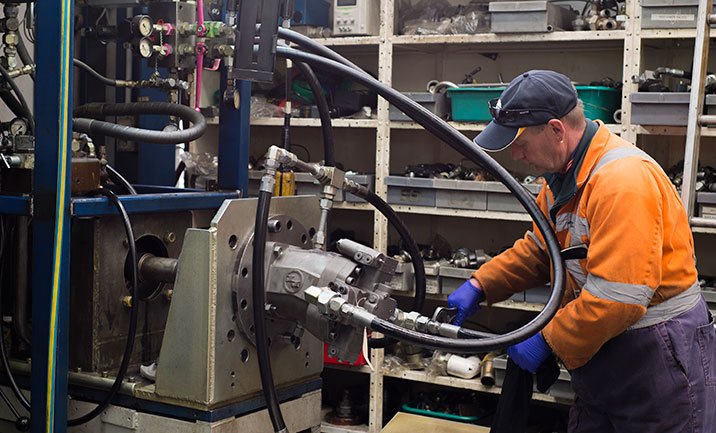Science: Unlocking the Mysteries of the Universe

Science: Unlocking the Mysteries of the Universe
Introduction
Science is the backbone of human progress, driving the discoveries and innovations that shape our world. From unraveling the mysteries of the cosmos to finding cures for diseases, science is at the forefront of solving global challenges and improving our quality of life. With every breakthrough, science opens new doors of understanding and creates endless possibilities for the future.
At its core, science is the pursuit of knowledge through observation, experimentation, and reasoning. It enables us to explore the world around us, discover how things work, and apply that knowledge to create practical solutions for everyday life.
The Power of Scientific Discovery
1. Advancements in Medicine and Healthcare
Science has revolutionized medicine, enabling us to combat diseases and extend life expectancy. Medical research has led to the development of life-saving vaccines, cutting-edge treatments, and advanced diagnostic tools. From personalized medicine to gene therapy, science continues to drive innovations that improve health and save lives.
2. Exploring Space and the Universe
One of the most awe-inspiring branches of science is astronomy, which seeks to answer fundamental questions about the universe. Through telescopes and space missions, we have uncovered the secrets of distant stars, planets, and galaxies. Space exploration has not only expanded our knowledge of the cosmos but has also paved the way for technologies that have improved life on Earth.
3. Environmental Science and Sustainability
Science is essential in understanding and addressing the environmental challenges we face today. By studying ecosystems, climate change, and natural resources, scientists develop strategies to protect the planet. Research in sustainability leads to innovations like renewable energy, eco-friendly materials, and waste reduction strategies that contribute to a healthier, more sustainable future.
4. Technological Innovation and Engineering
Science and technology are inextricably linked. Scientific discoveries fuel the development of new technologies, while engineering applies those discoveries to solve real-world problems. From the advent of computers to the rise of artificial intelligence, science drives technological innovation that transforms industries and enhances our daily lives.
Key Scientific Disciplines
1. Physics
Physics is the study of matter, energy, and the fundamental forces of nature. It helps us understand how the universe works, from the smallest particles to the largest cosmic structures. Key discoveries like quantum mechanics, relativity, and nuclear physics have shaped modern technology and opened new fields of study.
2. Chemistry
Chemistry explores the composition, structure, properties, and reactions of matter. It plays a central role in many industries, including pharmaceuticals, agriculture, and materials science. Chemical reactions lead to the creation of new substances and products, ranging from life-saving drugs to innovative materials used in everyday products.
3. Biology
Biology is the study of living organisms and their interactions with the environment. It covers everything from the smallest microorganisms to complex ecosystems. Genetics, evolution, and ecology are just a few of the many subfields that drive our understanding of life on Earth. Biological research is pivotal in fields like medicine, agriculture, and conservation.
4. Earth Sciences
Earth science encompasses the study of the Earth and its processes, including geology, meteorology, and oceanography. This field helps us understand natural phenomena such as earthquakes, volcanic eruptions, and climate patterns, as well as how to mitigate the impact of natural disasters.
5. Social Sciences
Social sciences study human behavior, societies, and cultures. Fields like psychology, sociology, and economics help us understand how people interact, how societies function, and how economies develop. This knowledge is crucial for solving social issues, improving education, and shaping public policies.
The Scientific Method: A Path to Knowledge
At the heart of science is the scientific method, a systematic approach to inquiry that involves observation, hypothesis formation, experimentation, and analysis. The scientific method ensures that findings are reliable, repeatable, and based on evidence. It’s a process of constant questioning, testing, and refining, leading to new discoveries and a deeper understanding of the world.
Science in Our Daily Lives
Science is all around us, and it impacts nearly every aspect of our daily lives. Whether it’s the phone you use, the food you eat, or the medicine you take, science has shaped the world we live in. Here are some examples of how science influences our everyday lives:
✔ Technology: Smartphones, laptops, and social media platforms all rely on scientific advancements in computing and telecommunications.
✔ Health: Advances in medical science have led to the development of vaccines, diagnostic tools, and treatments for diseases.
✔ Environment: Scientific research informs policies on climate change, waste management, and resource conservation, helping us build a more sustainable future.
The Future of Science
Science is constantly evolving, and the future holds endless possibilities. Some exciting areas of scientific research to look forward to include:
✔ Artificial Intelligence (AI) and Machine Learning: AI has the potential to revolutionize industries by automating tasks, enhancing decision-making, and creating new opportunities for innovation.
✔ Space Exploration: The search for life beyond Earth and the potential for human settlement on Mars are some of the exciting frontiers in space science.
✔ Nanotechnology: The manipulation of materials at the nanoscale promises to lead to breakthroughs in medicine, electronics, and materials science.
✔ Climate Change Solutions: Scientific innovations will continue to play a critical role in combating climate change, through renewable energy, carbon capture, and sustainable agricultural practices.
Final Thoughts
Science is more than just a field of study; it is the driving force behind progress and innovation. It empowers us to understand the world, solve problems, and shape the future. From healthcare breakthroughs to space exploration, science is integral to every aspect of human progress.
🔬 Stay curious, keep learning, and embrace the wonders of science!










No comments
Be the first to comment.